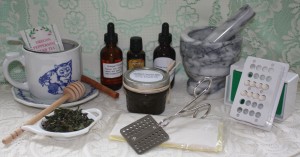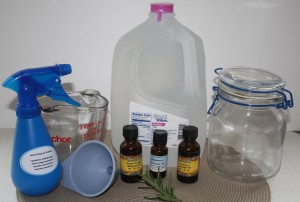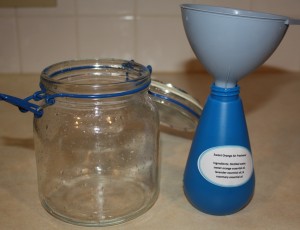Tummy troubles, gas, bloating, heartburn, discomfort, irritation, nausea, vomiting, diarrhea or burning sensation after eating are just some of the symptoms of indigestion. These are not words we like to hear.
Acute indigestion also known as immediate or persistent known as chronic is usually a symptom of improper eating and stress. The buzz word “stress” has its own set of problems and it is often used in conjuncture with most health problems, another subject for another day.
Eat too much and you may suffer the consequences, this includes eating food that does not agree with you, or poor food combinations, foods high in acid, eating too fast, too frequently, swallowing too much air, foods that are spicy or too hot or cold. What’s left!
Unrelenting indigestion may be caused by a lack of hydrochloric acid or not enough digestive enzymes when eating liquid with foods which dilutes the juices in our stomach.
What the first thing a waitress or waiter asks you when you sit down in a restaurant? “What can I bring you to drink?” Our answer should be nothing, but most of us and me included like something wet when we eat a meal.
Does this sound like you?
Food allergies, ulcers, smoking, or problems with liver and or gallbladder may also cause your tummy troubles. Green or red peppers, raw onions, cabbage, citrus fruit, tomatoes, spicy foods, or fried foods cause indigestion for many people.
What we eat is usually the cause, and since we can’t stop eating, using the right combination and the right amount, and thoroughly chewing our food, and the use of herbs may help us conquer or control our tummy troubles.
Keep a diary and try leaving off your dinner plate certain foods or combination of foods for a few days and see if symptoms persist.
Avoid eating in pairs the following:
- Fruits with vegetables
- Fruits with starches
- Sugars with proteins
- Sugar with starches
- Liquids with solids
- Citrus juice with cereal
- Cherries with dairy products
- Miso with fruit
Huh did this just ruin your breakfast?
Taking an antacid can do more harm than good, some contain aluminum and sodium which can change the acid/alkaline balance of our tummies, and long term usage may cause kidney damage. Hey we need our kidneys. Over the counter antacids are two of the top ten items purchased.
Vitamins which may help with indigestion:
- B-complex, B vitamins are essential for normal digestion
- Folic acid deficiency may cause poor digestion
- Vitamin C: bioflavonoid ascorbic acid form if hypo-acid or sodium acerbate from if hyper-acid
- Vitamin E
- Calcium/magnesium taken between meals
- Acidophilus is necessary for normal digestion
- Digestive enzymes such as papaya or pineapple
Papaya and Pineapple contains enzymes that break down foods and protein. Other fruits such as kiwi fruit and figs contain digestive enzymes, in smaller amounts.
Herbs good for indigestion:
- Drink pure aloe vera juice ¼ c on empty stomach in the morning and bedtime. Avoid if pregnant or nursing.
- Catnip, helps with diarrhea, calms nervous stomachs
- Peppermint, help with morning sickness (tincture works better than tea)
- Fennel seed, relives nausea
- Chamomile, relaxants, carminative, good for digestion (tincture works better than tea)
- Ginger, aids digestion, reduces nausea
- Rosemary
- Thyme
- Basil
- Spearmint, stimulates digestion, cooling
- Slippery elm
- Mallow root, soothes the digestive tract
- Meadowsweet, hyperacidity
- Parsley, healing ulcers, diuretic
More good news for the aged, as we grow older the levels of our hydrochloric acid (HCL) lessens due to deficient diet and stressful life.
Many will tell you, ginger is good for motion sickness and nausea, but it is also good for ingestion. Ginger contains compounds that will sooth the tummy and aid digestion.
Chew your food and eat slowly to give time for your digestive enzymes to get moving. Lifting weights over time can help to speed up the digestion by cutting the time it takes to move through the system.
Add tarragon, rosemary, and marjoram to your recipes, these herbs help to digest food. Add parsley whenever you add garlic to help with any garlic related problems.
Here a tasty treat for over indulging in dinner: Drink 1 tsp. lemon juice mixed with ½ tsp. baking soda to a glass of water. Drink quickly. I know sound awful, but it works.
For a better tasting drink: Add 3 drops peppermint oil to a cup of warm water mixed with honey.
Too much acid in the gut: eat dried rolled oats and chew thoroughly.
Not enough acid: Drink 1 Tbsp. honey, 1 Tbsp apple cider vinegar in a cup of warm water.
Use a juicer and make this drink for indigestion: Mix ginger root with fresh mint, kiwi fruit, and about one cup fresh pineapple.
Tummy Soother Breakfast drink:
- Mix 1 ripe papaya, peeled, seeded and cut into chunks
- Splash of vanilla
- 1 to 3 packets of stevia
- Dash of cinnamon
- 1 c. milk or yogurt
- Ice cubes made with crushed mint
- Fresh mint leaves to garnish
Mix papaya, vanilla, stevia, cinnamon and milk or yogurt. Blend until smooth. Add ice cubes and process until thick and creamy. Garnish with fresh mint leaves.
Note: If you freeze the papaya it will make a creamer drink, and most of the ice cubes can be left out.
For mint ice cubes: add crushed mint to an ice cube tray and fill with water. Check out my blog on harvesting herbs.
Hope these hints and suggestions help to take away your tummy troubles.



